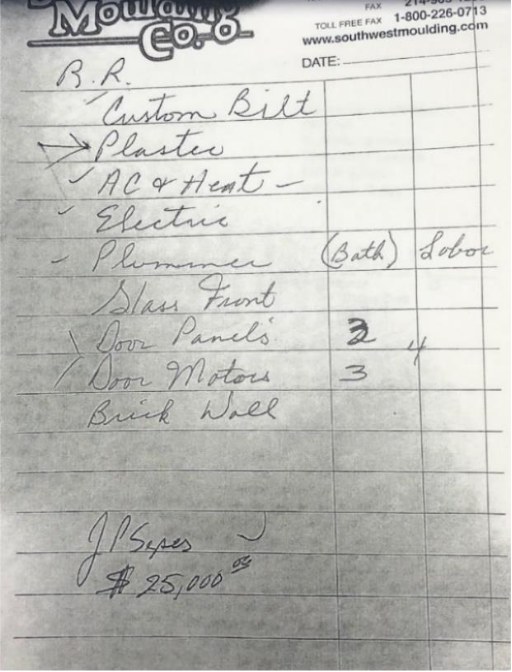
Whenever accepting a new construction job, it’s critical that the agreement is put in writing. The contract should contain a clear outline of the obligations and expectations of each party. Whenever a contract is unclear or ambiguous, disputes can become complicated. A Louisiana contractor was recently found liable for defective work and completion costs after they were terminated. Since the contract was ambiguous, the contractor assumed the work wasn’t covered in their scope of work.
Ambiguous contract interpretation
A construction contract is the backbone of any given project. A well-drafted contract should include the price, the scope of work, and how to deal with any changes, disputes, and unforeseen events.
When working under a contract, expectations are clear. If an issue arises, it will be resolved according to the terms of the contract. If not, when a dispute arises, the intent of the parties will have to be determined by the courts. Under La. Civ. Code §2046,
“When the words of a contract are clear and explicit and lead to no absurd consequences, no further interpretation may be made in search of the parties’ intent.”
Unfortunately, ambiguity in a contract can lead to some unexpected results, like it did for a Louisiana contractor in a Court of Appeals case.

Free contract template download
Download a free construction contract template that works on almost any project.
Contractor performs work under an ambiguous contract
The case in question is Redstone v. Sipes, decided by the court in April 2020.
Project Snapshot
- Owner: Robert E. Redstone (Redstone)
- General Contractor: John P. Sipes (Sipes)
Redstone hired Sipes to perform renovation work on a commercial property, to remodel the interior so Redstone could use the space for his insurance business. The work included creating a conference room, two offices, a hallway, and a bathroom.
The agreement between the parties was a single page, handwritten by Sipes, listing general items and a “contract” price of $25,000.

Delays and defective work leads to termination
Almost two months into the project, Redstone had paid Sipes the full $25,000 plus an additional $3K as an advance for the bathroom plumbing.
However, the project had a specific timeline because Redstone planned on relocating his office to the renovated property. As the project was continually delayed, Redstone terminated Sipes and hired replacement contractors to finish the project.
When the new contractors began work, multiple defects and substandard work were discovered and repaired. The cost for the replacement contractors and repair of defective work was an additional $17K.
Redstone sent demand letters requesting payment for the damages of hiring new contractors and repairing the work.
As you can guess, Sipes refused. So Redstone filed a suit claiming breach of contract, negligent performance, and failure to perform the work in a timely manner.
Owner files suit for additional costs to finish the project
At trial, the biggest point of contention was the renovation of the bathroom.
Sipes claimed that the plumbing labor was listed in the “contract” as work to be covered by Redstone, not under his scope of work.
The $3K advance, according to Sipes, was to prepare the bathroom for plumbing. Not to perform the plumbing work.
He claimed that he was wrongfully terminated and that the additional costs of hiring replacement contractors were significantly greater than if he were allowed to finish and remedy any defective work.
However, the court was not swayed. They declared that the contract was “ambiguous in part” and ruled in favor of Redstone for the full $17K plus court costs. Sipes appealed.
Appeals court declares the contract as ambiguous
On appeal, Sipes maintained that that bathroom was “not contemplated by the contract.” Furthermore, he argued that Redstone was clearly listed as responsible for the “plumber labor.” The court analyzed the contract in question.
Under Lousiana law, a contract will be deemed ambiguous when any of the following conditions are met:
- It lacks a provision on the considered issue
- The terms are susceptible to more than one interpretation
- There is uncertainty or ambiguity as to its provisions
- The intent of the parties can’t be ascertained from the contract language
The court noted that there was no explanation or description of the scope of work, or any allocation of costs for the bathroom renovations.
Therefore, the contract was unclear and ambiguous.
So the intent of the parties would be determined by the evidence presented. When Redstone paid the additional $3K, the court deemed this an oral modification to the contract.
Thus, Sipes was responsible for the bathroom work.
Furthermore, Redstone had provided enough evidence that: (a) the work was defective, and (b) all of the costs associated with the completion of the work.
Accordingly, the Second Circuit affirmed the trial court’s decision and the award of $17K plus court costs was upheld.
Draft your contracts carefully
Gone are the days of handshake deals and simple invoices. These aren’t enough to protect yourself and your payments in the construction industry today.

It’s important to not only get your contract in writing, but written in enough detail to clearly outline the project and the scope of work. That way, if issues arise, there is a clear point of reference to deal with them.
Working under an ambiguous contract is like walking the high wire without a safety net. If the intent of the parties isn’t clear from the contract, then you’re leaving the interpretation up to the courts when things go awry.
Don’t leave your rights in the hands of fate. Be sure to draft your contracts carefully.